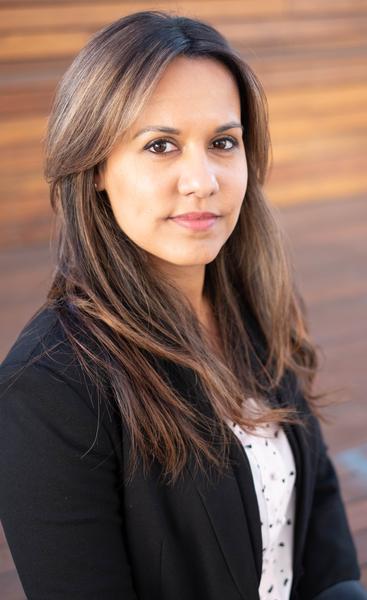QBE gets pragmatic with innovation
- 11 June, 2019 12:53

In 2017, researchers from QBE's Digital Innovation Lab filled a soon-to-be-demolished residence in Wisconsin with smart home tech, including Google Homes and Amazon Alexas. Once everything was connected and configured, they set the house on fire.
"If you had all these devices that you rely on heavily at home and a fire occurred what would their reaction be?" explains head of the global digital lab Jesmin Gill.
It turns out, not much of a reaction at all.
"Could we say if you have these devices your home is a bit more safe or that you're protected through early warning? But no. Doesn't do anything. Just expensive tech burning down!" Gill tells CIO Australia.
Other experiments in recent years have seen drones scrambled in the wake of a natural disaster to assess and process insurance claims faster and IoT sensors fitted to farm machinery to detect overheating engines.
Despite some promise from these proof-of-concepts, over the past eight months, the insurer has adjusted its stance on innovation. Although the "horizon three" research into things like blockchain and quantum computing continues, Gill says the focus now is on "things that are more practical for the organisation".
"What could we actually prototype that the business can start putting in place today?" she says.
Pragmatic innovation
QBE is Australia’s largest global insurer. It established its innovation lab in 2016 to help it ‘make a call’ on which emerging technologies could improve its business, and which were ‘simply noise’.

Its
establishment came before a period of big losses, class actions and the departure
of CEO John Neal in 2017. Under new
chief executive Pat Regan, the company has become, in his words “simplified
and more focused” – or as some
have put it “a boring, sensible QBE”.
In turn, the labs are becoming increasingly focused on developing pragmatic, practical innovations.
“There are a lot of CIOs and CTOs with innovation labs. Apple or Google throwing millions at R&D makes sense, but we're a financial institution so we've got to be pragmatic. The underpinning challenge…is we do want to come up with robotics and exciting tech, but we've also got to be practical,” Gill says.
“In insurance there’s a lot organisations that have started [an innovation lab] and shut it down. Or it became the thing to do but it didn't succeed…We've got to find a way to bridge the gap between amazing technology, what the business needs are now and what our customers are asking for at a simple level. So you can give them all the whizz-bang but if they don't know who to call for their claim, is that really a good experience?” she adds.
A recent output of the more pragmatic innovation effort is a proactive messaging service, which sends customers in areas due to be hit by extreme weather information about how to claim if their property is damaged.
"Our internal team can assess the weather patterns and based on that send out an email to a certain customers that we think will be impacted by a storm or fire or catastrophe,” explains Gill.
The message tells the customer a storm or hurricane is on its way and gives safety advice. It then points customers towards a ‘first notice of loss’ form on QBE’s website, the first step in the claims process.
“Rather than putting the customer in the position where they're scrambling around trying to find their details, trying to figure out am I insured am I not, they can let us know straight away. And one of our team will call back within 24 hours,” Gill says.
Following a positive response from customers and the business to a limited trial in areas affected by Hurricanes Michael and Florence in the US last year, QBE is now considering bringing the feature to Australia with a few tweaks.
"We can experiment but we can deliver real value today,” Gill says. “Proactive messaging, it may not be complex technology but it delivered something of value for our customers, a gap, we solved a problem.”
This year QBE will host a series of hackathons. By bring technology experts from the lab and teams from the business together, it is hoped some other practical, nearer-term ideas will emerge. Through the hackathons the lab will “see the problems of the business and use that as a springboard” Gill says.
The firm is also prototyping a redesigned web portal for brokers, which will feature a number of automated processes.
“We've got a lot of things we’d love to do, its sifting through that and making sure we've got the right mix,” Gill says.
Finding the balance is essential, Gill explains.
“We are walking a tightrope because as soon you show you're not delivering value back to the organisation…There’s a constant navigation,” she says.
Our Xbox
A perennial problem of introducing innovative ideas to large enterprises is that of adoption.
Gill says within QBE there is an “old guard” with a “traditional way of thinking” while other areas are “really wanting to embrace” new ways of working
“It’s a large organisation. Some teams are ahead of the curve, some are still quite manual. And being a global team, things we accept as normal here are not normal there. It’s navigating and negotiating that,” she explains.
“We can come up with some whizz-bang, really creative idea, but if people want to keep clicking their spreadsheets, because they don't want to change their behaviour, even though they've got something that could do it automatically for them – that’s a mindset change,” Gill says. “It’s balancing the two. It’s about walking before you can run.”
Although the effort continues to convince some business units to ditch manual processing and “lots of paper” the lab nevertheless is keeping horizon three concepts in mind.
Gill is inspired by Microsoft and its creation of the Xbox. The console was Microsoft’s first foray into the gaming console market, a completely new direction for the traditionally software focused firm.
“The challenge for us as an organisation is – what is our Xbox? What is that ultimate goal? How do we start implementing and prototyping aspects of that…so in ten years’ time we're like, of course that’s what QBE does,” Gill says.

